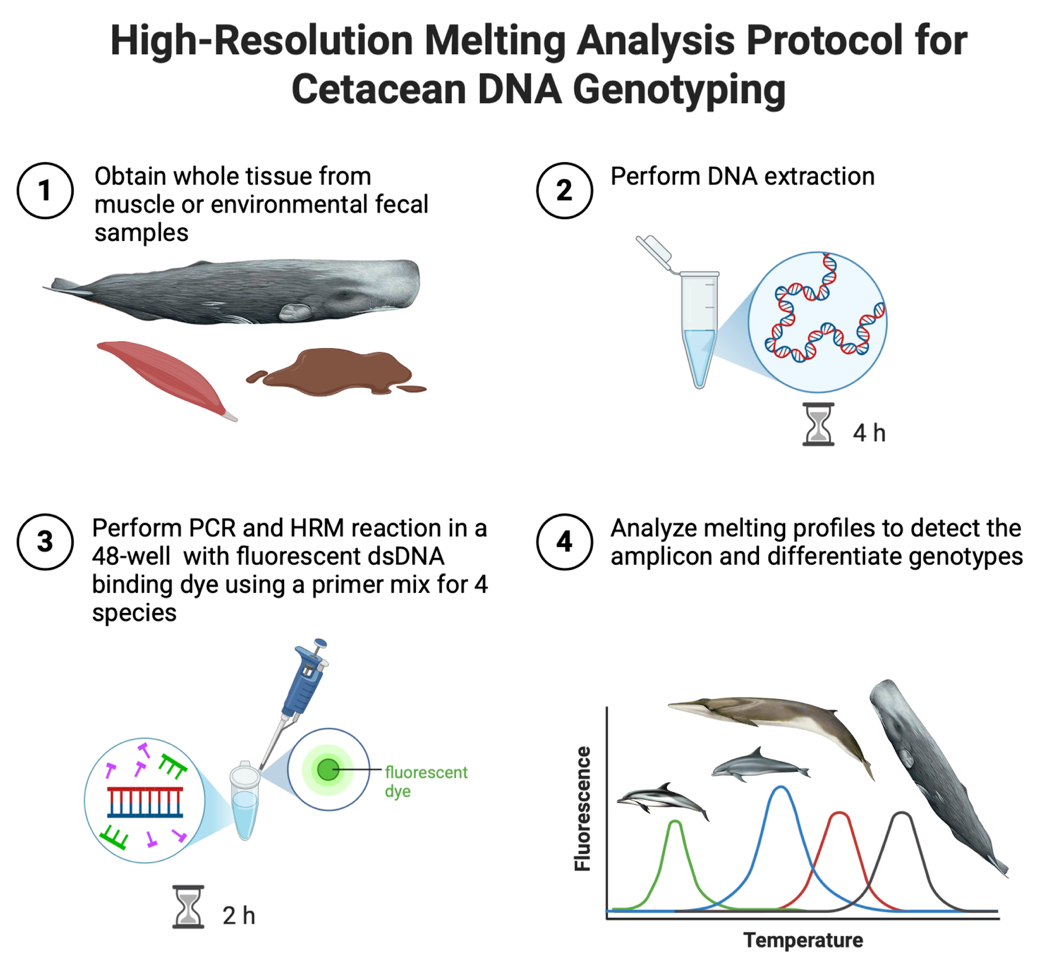In our latest study, just published in the International Journal of Molecular Sciences, we developed a fast and reliable method to identify four Mediterranean cetacean species 🐳🐬🐋 … using not only tissue samples, but also their feces! 🐬💩🔬
🧬 Thanks to High-Resolution Melting (HRM) analysis, we can accurately identify striped dolphins, bottlenose dolphins, sperm whales, and fin whales—even from degraded samples like feces or stranded tissue.
The protocol we developed distinguishes species-specific DNA by analyzing the melting temperature of the PCR product: each species has a unique DNA sequence, and thus a unique melting temperature 📊.
This represents a breakthrough not only for marine biodiversity monitoring, but also for conservation efforts 🌍 and the fight against illegal trade.
🔹 This work was made possible thanks to a strong collaboration among the University of Naples Federico II, the Oceanomare Delphis APS association, and the Istituto Zooprofilattico Sperimentale del Mezzogiorno, all committed to protecting marine life in the Mediterranean.
🌊 Special thanks to the crew of the sailing vessel Jean Gab ⛵, who collected samples at sea with full respect for the animals.
📌 For those who love the sea, science, and protecting biodiversity—this is just the beginning! 💡

